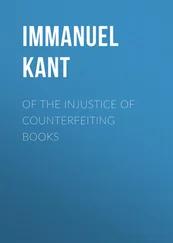This transcendental principle of the mathematics of phenomena greatly enlarges our a priori cognition. For it is by this principle alone that pure mathematics is rendered applicable in all its precision to objects of experience, and without it the validity of this application would not be so self-evident; on the contrary, contradictions and confusions have often arisen on this very point. Phenomena are not things in themselves. Empirical intuition is possible only through pure intuition (of space and time); consequently, what geometry affirms of the latter, is indisputably valid of the former. All evasions, such as the statement that objects of sense do not conform to the rules of construction in space (for example, to the rule of the infinite divisibility of lines or angles), must fall to the ground. For, if these objections hold good, we deny to space, and with it to all mathematics, objective validity, and no longer know wherefore, and how far, mathematics can be applied to phenomena. The synthesis of spaces and times as the essential form of all intuition, is that which renders possible the apprehension of a phenomenon, and therefore every external experience, consequently all cognition of the objects of experience; and whatever mathematics in its pure use proves of the former, must necessarily hold good of the latter. All objections are but the chicaneries of an ill-instructed reason, which erroneously thinks to liberate the objects of sense from the formal conditions of our sensibility, and represents these, although mere phenomena, as things in themselves, presented as such to our understanding. But in this case, no a priori synthetical cognition of them could be possible, consequently not through pure conceptions of space and the science which determines these conceptions, that is to say, geometry, would itself be impossible.
2. Anticipations of Perception.
The principle of these is: In all phenomena the Real, that which is an object of sensation, has Intensive Quantity, that is, has a Degree.
PROOF.
Perception is empirical consciousness, that is to say, a consciousness which contains an element of sensation. Phenomena as objects of perception are not pure, that is, merely formal intuitions, like space and time, for they cannot be perceived in themselves. They contain, then, over and above the intuition, the materials for an object (through which is represented something existing in space or time), that is to say, they contain the real of sensation, as a representation merely subjective, which gives us merely the consciousness that the subject is affected, and which we refer to some external object. Now, a gradual transition from empirical consciousness to pure consciousness is possible, inasmuch as the real in this consciousness entirely vanishes, and there remains a merely formal consciousness ( a priori ) of the manifold in time and space; consequently there is possible a synthesis also of the production of the quantity of a sensation from its commencement, that is, from the pure intuition = 0 onwards up to a certain quantity of the sensation. Now as sensation in itself is not an objective representation, and in it is to be found neither the intuition of space nor of time, it cannot possess any extensive quantity, and yet there does belong to it a quantity (and that by means of its apprehension, in which empirical consciousness can within a certain time rise from nothing = 0 up to its given amount), consequently an intensive quantity. And thus we must ascribe intensive quantity, that is, a degree of influence on sense to all objects of perception, in so far as this perception contains sensation.
All cognition, by means of which I am enabled to cognize and determine a priori what belongs to empirical cognition, may be called an anticipation; and without doubt this is the sense in which Epicurus employed his expression προλεχισ. But as there is in phenomena something which is never cognized a priori , which on this account constitutes the proper difference between pure and empirical cognition, that is to say, sensation (as the matter of perception), it follows, that sensation is just that element in cognition which cannot be at all anticipated. On the other hand, we might very well term the pure determinations in space and time, as well in regard to figure as to quantity, anticipations of phenomena, because they represent a priori that which may always be given a posteriori in experience. But suppose that in every sensation, as sensation in general, without any particular sensation being thought of, there existed something which could be cognized a priori , this would deserve to be called anticipation in a special sense — special, because it may seem surprising to forestall experience, in that which concerns the matter of experience, and which we can only derive from itself. Yet such really is the case here.
Apprehension, by means of sensation alone, fills only one moment, that is, if I do not take into consideration a succession of many sensations. As that in the phenomenon, the apprehension of which is not a successive synthesis advancing from parts to an entire representation, sensation has therefore no extensive quantity; the want of sensation in a moment of time would represent it as empty, consequently = O. That which in the empirical intuition corresponds to sensation is reality (realitas phaenomenon); that which corresponds to the absence of it, negation = O. Now every sensation is capable of a diminution, so that it can decrease, and thus gradually disappear. Therefore, between reality in a phenomenon and negation, there exists a continuous concatenation of many possible intermediate sensations, the difference of which from each other is always smaller than that between the given sensation and zero, or complete negation. That is to say, the real in a phenomenon has always a quantity, which however is not discoverable in apprehension, inasmuch as apprehension take place by means of mere sensation in one instant, and not by the successive synthesis of many sensations, and therefore does not progress from parts to the whole. Consequently, it has a quantity, but not an extensive quantity.
Now that quantity which is apprehended only as unity, and in which plurality can be represented only by approximation to negation = O, I term intensive quantity. Consequently, reality in a phenomenon has intensive quantity, that is, a degree. If we consider this reality as cause (be it of sensation or of another reality in the phenomenon, for example, a change), we call the degree of reality in its character of cause a momentum, for example, the momentum of weight; and for this reason, that the degree only indicates that quantity the apprehension of which is not successive, but instantaneous. This, however, I touch upon only in passing, for with causality I have at present nothing to do.
Accordingly, every sensation, consequently every reality in phenomena, however small it may be, has a degree, that is, an intensive quantity, which may always be lessened, and between reality and negation there exists a continuous connection of possible realities, and possible smaller perceptions. Every colour — for example, red — has a degree, which, be it ever so small, is never the smallest, and so is it always with heat, the momentum of weight, etc.
This property of quantities, according to which no part of them is the smallest possible (no part simple), is called their continuity. Space and time are quanta continua, because no part of them can be given, without enclosing it within boundaries (points and moments), consequently, this given part is itself a space or a time. Space, therefore, consists only of spaces, and time of times. Points and moments are only boundaries, that is, the mere places or positions of their limitation. But places always presuppose intuitions which are to limit or determine them; and we cannot conceive either space or time composed of constituent parts which are given before space or time. Such quantities may also be called flowing, because synthesis (of the productive imagination) in the production of these quantities is a progression in time, the continuity of which we are accustomed to indicate by the expression flowing.
Читать дальше












